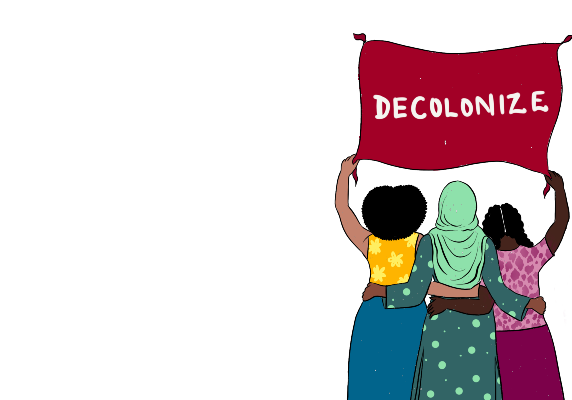Finding the silver lining: civic space in 2022
It’s been a difficult year for civil society in the UK as our rights and freedoms continue to come under pressure.
As campaigners, much of our time is spent firefighting, but amidst the challenging developments this year, there have been some positives.
More restrictions on civil society in the UK
We started 2022 with a win on the Police, Crime Sentencing and Courts Act. Campaigners persuaded the House of Lords to vote down the most draconian curbs on protest rights. After weeks of the bill bouncing back and forth between the Commons and the Lords, it finally became law in April 2022, along with the Elections Act and the Nationality and Borders Act. But for the government, the new restrictions on demonstrations, electoral participation and refugee rights did not go far enough.
Less than two weeks after these bills became law, the government sought to introduce yet more limits on protest rights in the Public Order Bill. This draconian legislation will make “locking on” a criminal offence and introduces protest-related stop and search powers. Most shockingly, it will give the police powers to subject demonstrators to Serious Disruption Prevention Orders which involve intrusive state surveillance without them even having to commit an offence.
The government also introduced the National Security Bill. The aim was to deter and disrupt state actors who wish to harm the UK, but the bill will also impact journalists, transparency campaigners and civil society groups. It will be illegal for those receiving funding from a foreign government to obtain or use leaked information in a way the government decides is harmful to the UK. The bill also requires those involved in political influencing in the UK to register under the Foreign Influence Registration Scheme if their activities are funded or “directed by” a non-UK organisation.
It remains unclear whether the government is pressing ahead with plans to scrap the Human Rights Act and replace it will the Bill of Rights, which will let them decide who has rights and who does not, give the authorities license to ignore people’s rights, and make it harder for people to challenge the abuse of their rights.
Harmful narratives persist
Sadly, we have seen parts of the government continue to use harmful narratives undermining campaigners for social justice singling them out as too political or woke.
In October, charity lawyers and sector bodies criticised the Charity Commission for changing its guidance on political activity after it released a slimmed-down version of the guidance. Its new chair also cautioned trustees to consider whether undertaking political activity was “a prudent thing to do” and urged charities to campaign with “tolerance and kindness”.
Subscribe to our newsletter
Our weekly email newsletter, Network News, is an indispensable weekly digest of the latest updates on funding, jobs, resources, news and learning opportunities in the international development sector.
Get Network NewsGovernment departments have also been banned from inviting speakers who have been critical of the government, instructing event or meeting organisers to trawl through their social media feeds to identify anyone who is unsupportive of government policies.
Positive developments
Despite what seems at times to be a relentless assault on our rights, there are positive developments that we can build on as we look to the future.
Cross-sector connections between civil society groups in the UK are stronger than they have ever been. This year we have seen international development, environment and nature, racial justice, human rights, migrant and refugee, women and gender, anti-poverty, democracy, and community organisations all working together to push back against regressive legislation.
Working together has enabled us to hold the government accountable over new restrictions and even to blunt their worst impacts, as we did with the Police Crime Sentencing and Courts Act. We pioneered new ways of bringing together diverse organisations, which enabled us to be more inclusive, amplify different but complimentary voices and mobilise public support.
Bond and others in UK civil society have also begun tracking and monitoring restrictions on civil society more systematically. This has enabled us to get a better picture of what might be coming next and prepare.
Looking to the future
Improved collaboration is the silver lining of increased restrictions and as we look to the future, we must build on this. A connected civil society where diverse voices can flourish is central to building a healthy civic space in the UK. Bond is working with organisations from across UK civil society to identify policies that will help build a more equitable and inclusive civic space.
The forthcoming general election, which is due to take place by January 2025 at the latest, presents an opportunity to push for a different approach by those in power and shift the prevailing narrative. There is no guarantee that whichever party wins the next general election will prioritise building a healthy civic space and value civil society. There is a real risk that existing negative narratives about civil society and protest have become entrenched.
If we can build on the positive, cross-sector collaborations that have emerged this year, and create a shared vision for the future, hopefully, we can make the case to all those who oppose the bedrocks of our democracy: civic space and the right to campaign.
Category
News & ViewsThemes
Civic space



